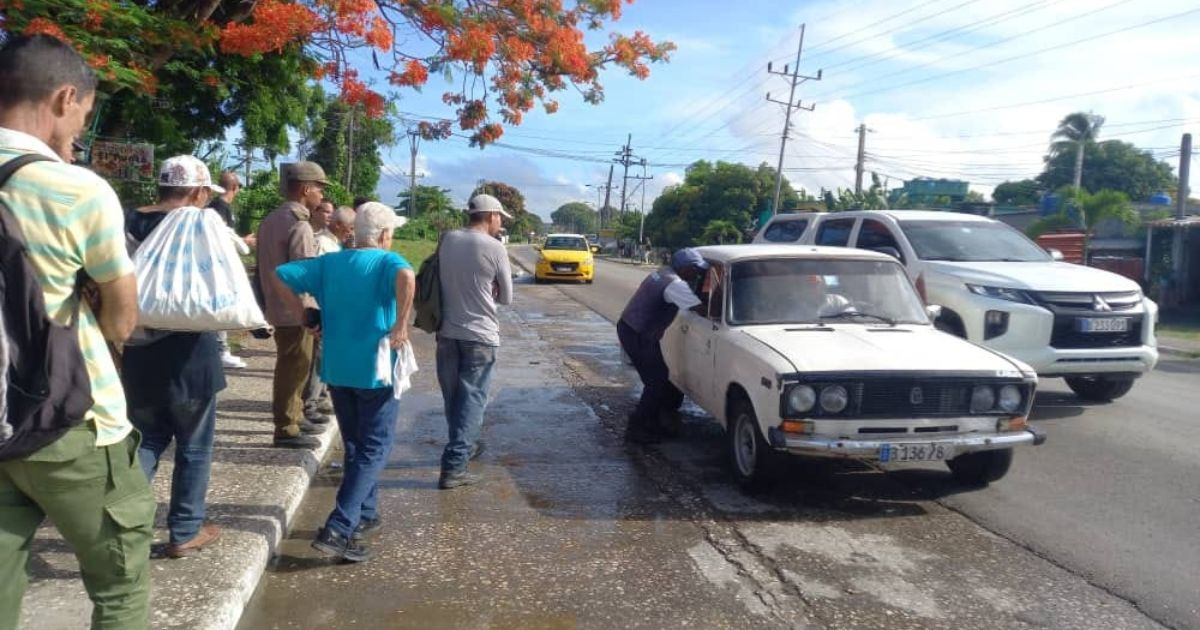The government of Villa Clara province has issued a stern warning to state drivers: they risk losing their driving licenses if they fail to pick up passengers at designated stops. The state-run radio station CMHW reported that the province's governor, Milaxy Yanet Sánchez Armas, criticized state vehicle drivers for not stopping or claiming that their routes end near the pickup points.
Sánchez emphasized that they visited these locations due to widespread public dissatisfaction and witnessed the hardships people endure at the interprovincial bus terminal. One individual reported that the terminal conditions are deplorable, with overcrowding and homeless people lying on the seats, forcing travelers to stand.
Additionally, the waiting list is managed through a single window, causing prolonged waits for those either traveling or trying to register, often in very uncomfortable conditions. A woman mentioned that she had been on the waiting list for two days to travel to Havana, but only one or two people were called whenever a bus arrived. "I can't leave this place, and they don't sell meals, just snacks, and I'm diabetic," she noted.
Another person complained that the interprovincial bus terminal is filthy and that people sleeping on the benches prevent others, like her, who arrived from Sagua la Grande with her child at 2:30 AM, from sitting down.
The report from the state-run radio station also highlighted that the main issue plaguing passengers at the terminal is the frequent and routine bus delays. Ailen Aparicio Rodríguez, the head of the agency, provided a list of excuses for the institution's inefficient management: "The hall is small, and during vacations, very few people cancel their trips, so those are the seats offered by the waiting list." She noted that previously, when there was a passenger overflow, the government and National Buses would dispatch extra buses; however, it can now take up to four days for a bus to arrive.
"We depend on Transtur, Transgaviota, and Transmetro, which occasionally enter the terminal to pick up passengers, but that happens maybe once or twice a week," she emphasized.
A similar situation was reported in Santiago de Cuba when the fuel crisis led to long waits at the bus terminal. Last July, the Cuban government acknowledged the transportation crisis, revealing that more than half of the provincial routes are paralyzed, as disclosed during a session of the Cuban Parliament. Eduardo Rodríguez Dávila, the Minister of Transport (Mitrans), indicated that as of April, 52% of the routes operated by provincial transport companies were halted, according to the state newspaper Granma.
The minister explained that of the active provincial routes, 86% function with just one trip in the morning and another in the afternoon. Rodríguez admitted that the situation is more critical in the provinces of Camagüey, Granma, Villa Clara, Ciego de Ávila, Holguín, Matanzas, and Artemisa.
Villa Clara Transportation Crisis: Key Questions Answered
In light of the recent threats to revoke licenses of state drivers in Villa Clara, we address some pressing questions about the ongoing transportation crisis in Cuba.
Why are state drivers in Villa Clara at risk of losing their licenses?
State drivers are at risk of losing their licenses because they are reportedly failing to pick up passengers at designated stops, exacerbating the transportation crisis in the province.
What are the main issues faced by passengers at the interprovincial bus terminal?
Passengers face multiple issues, including overcrowding, poor sanitary conditions, long waiting times due to a single registration window, and frequent bus delays.
How has the Cuban government responded to the transportation crisis?
The Cuban government has acknowledged the transportation crisis, revealing that over half of the provincial routes are paralyzed and highlighting the significant challenges in specific provinces.
